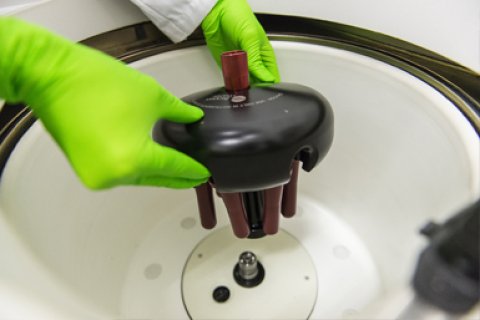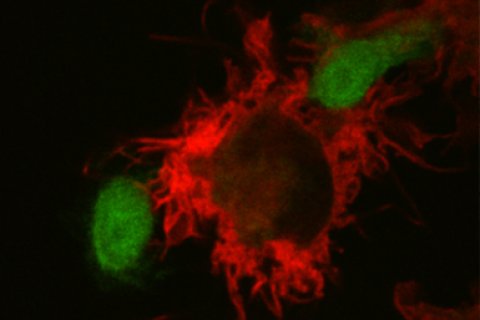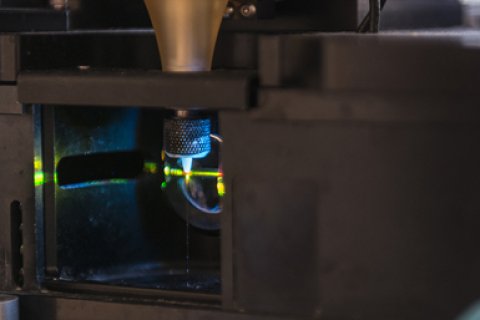Cell Biology
Multicellular organisms exist by virtue of intricate communication between cells
To generate balanced immune-responses, specialised executive and regulatory immune cells need to establish communication networks. Cell functions are regulated not only through differential gene expression, but also by transport of signaling molecules to the plasma membrane or into cell-derived extracellular vesicles. These are very small vesicles that are either secreted by multivesicular bodies within the cell, or pinch off directly from the plasma membrane of the cell.
We particularly focus on the role of cell-derived extracellular vesicles in infection and immune regulation. Our ultimate future aim is to understand communication in complex cellular circuits and to deploy extracellular vesicles as novel biomarkers for disease and for therapeutic strategies, such as vaccination.

The Role of Subcellular Trafficking in immune Regulation
How do cells sort molecules that regulate the immune system? And how does this determine their distribution on the plasma membrane and extracellular vesicles? Read more

Extracellular Vesicles in Intercellular Communication
How can extracellular vesicles regulate immune development and homeostasis of the immune system? Can extracellular vesicles transfer messages from one organism to the other, for instance from mother to child? Read more

Development of EV-technology
Analysis of cell-derived extracellular vesicles (EVs) is an emerging field with many technical challenges. High resolution flow cytometry is a suitable technology to quantify and characterise extracellular vesicles, which are a million times smaller in volume than cells. Read more

